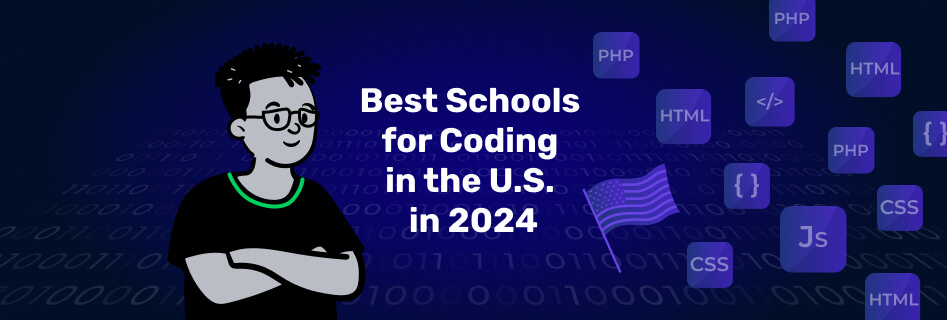
How to Become an Artificial Intelligence (AI) Engineer
As more companies try to automate as many operations as possible to boost productivity and efficiency and save time, the popularity of artificial intelligence applications is gaining momentum, creating a massive demand for AI developers. So, if you’re considering entering this rapidly evolving field and increasing your relevance at work, now is the ideal time.
In this article, you will discover what an artificial intelligence developer does and the steps to becoming a successful professional.
What is an artificial intelligence engineer?
AI engineers are technology experts who build tools, software, systems, and processes that employ machine learning to study human behavior and carry out tasks independently. Simply put, AI engineers develop strategies for increasing the operational productivity and efficiency of a company.

What does an artificial intelligence engineer do?
An AI engineer’s responsibilities include the following:
- Making use of machine learning to automate processes.
- Developing ML algorithms and deploying them.
- Developing, testing, and deploying artificial intelligence systems and models.
- Developing and managing tools and systems that fall within the AI infrastructure.
- Coordination between the data science and software development teams.
- Developing new and more efficient capabilities and operations using AI.
- Creating tools that analyze data automatically and help businesses make better decisions.
- Converting ML models into APIs to enable access to other apps.
- Converting machine learning models into application programming interfaces (APIs) to enable access to other applications.
As you can see, businesses across various industries can significantly benefit from the services of experts in AI software engineering.
How to become an AI engineer?
Now that you are well aware of what an AI engineer does, you may wonder, “How to get into artificial intelligence?” That’s simple—just follow the steps below.
Earn a computer science degree or one with a focus on artificial intelligence
At least a bachelor’s degree in any field related to information technology or computer science is required for a career in artificial intelligence. Having a college degree is also crucial because it will help you comprehend the fundamentals of data science and computer science and the mechanisms of applying them. You can even get a master’s degree in data science, machine learning, or artificial intelligence to learn the industry inside and out.
Most employers will ask for an academic degree to prove your expertise when seeking candidates. Consequently, earning a degree is crucial if you want to work as a professional AI engineer.
Acquire tech skills
AI engineering entails technical operations that call for a broad range of expertise. You have to deeply understand machine learning algorithms, including recurrent neural networks, learning algorithms, and linear regression, to use AI in software development and build reliable systems.
As artificial intelligence engineers work with a lot of data, you should also be comfortable with big data tools like MongoDB that assist with data management. Understanding algebra will help you build and implement various AI and ML models.
But that’s not all. Jobs in AI engineering typically require a solid knowledge of programming languages. Therefore, you have to become proficient in the top programming languages used for artificial intelligence coding, such as Python and C++.
Obtain professional certifications
A professional certificate is a perfect way to broaden your knowledge. You can earn it by taking part in professional certification programs. This way, you will not only get the AI developer skills needed to kickstart a successful career but also will be able to demonstrate your value as an AI engineer.
Obtaining professional certificates provides a competitive edge in the increasingly volatile and competitive job market. It improves your chances of getting hired for senior-level roles, so consider enrolling in a professional course, passing an exam, or getting certified by a reputable institution. A few of these include:
- Machine Learning Specialization by DeepLearning.ai & Stanford
- IBM Applied AI Professional Certificate by IBM & University of London
- AI For Everyone by DeepLearning.ai
- Introduction to Artificial Intelligence (AI) by IBM
- AI For Business Specialization by the University of Pennsylvania
- IBM AI Engineering Professional Certificate by IBM & University of London
By the way, if you ever get stuck on any AI-related concepts or techniques not covered by the course, submitting a “do my programming homework” request with a professional programming assignment assistance service might be the best and safest option.
Develop soft skills
Since artificial intelligence engineers frequently work in teams, one of the crucial artificial intelligence engineer requirements is having soft skills to be able to get on well with other experts. Besides, you have to have strong communication skills to present your ideas so that other people can perceive them.
Working with data also requires an eye for detail and critical thinking. Developing business intelligence skills will enable you to build artificial intelligence (AI) models that will aid companies in making wiser business decisions. Having a deadline-driven mindset will also help you finish projects ahead of time.
Get hands-on with AI
If you’re just starting in the field, you can find yourself at a disadvantage since most businesses prefer AI engineers with extensive expertise. However, you can acquire practical experience through a bootcamp or training. The projects you accomplish in this course will count toward your fieldwork experience.
Personal projects with practical applications are another way to go. Besides, you can earn industry experience by taking on entry-level positions and progressing up the ladder. In such a case, the number of completed projects will count as your experience level.
Establish a business network
While data scientists and software developers often collaborate with AI engineers, networking with other industry professionals is an excellent method to stand out in the field. You will undoubtedly learn something new and keep up with the most recent advances in the area if you network with other industry professionals.
Also, networking in your field makes it simple to get hired and enables you to assemble a group of engineers with whom you can complete large projects more quickly and efficiently. That’s why it is crucial that you choose a professional group or association you can join to expand your network.
Write a resume and apply for engineering positions in AI
After learning how to code an AI, acquiring the necessary abilities, and trying your hand at real-world projects, it’s time to prepare a technical resume emphasizing your experience and in-depth knowledge. It’s also important to list both soft and hard skills to increase your chances of getting a job.
Be sure to include any professional qualifications you may have, as well as your proficiency in programming languages, AI tools, and other tech skills, in your resume. Thereafter, submit applications for engineering positions relevant to AI. The other important thing to do is update your resume with the most recent training, experience, and skills to demonstrate your growth.
Final word
As more companies use AI-powered applications to boost productivity, increase efficiency, and save time, AI continues contributing to business development, industry development, and the global economy.
It is anticipated that the field of artificial intelligence will continue to expand as there is always a demand for more AI solutions. So, if you want to benefit from the many exciting advantages and significant financial rewards of this developing industry, you should think about becoming an AI engineer today.
For assistance with tasks like setting up a neural network using visual basic and AI, you can always count on visual basic assignment help from programmingassignment.net. Our experienced programmers are available to assist you 24/7!





